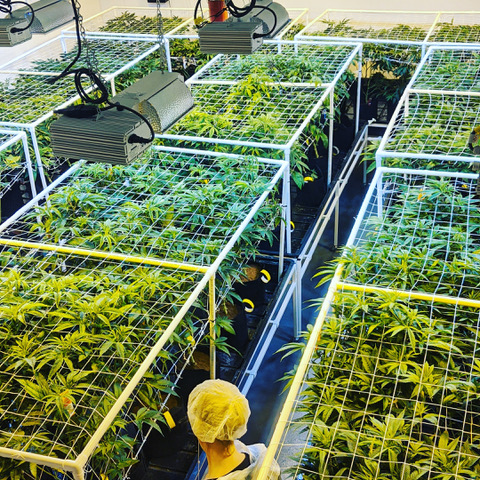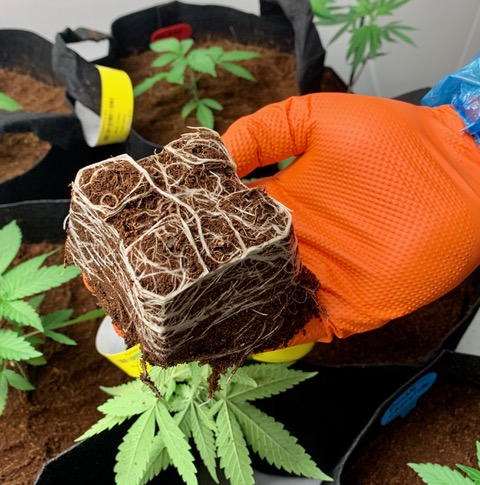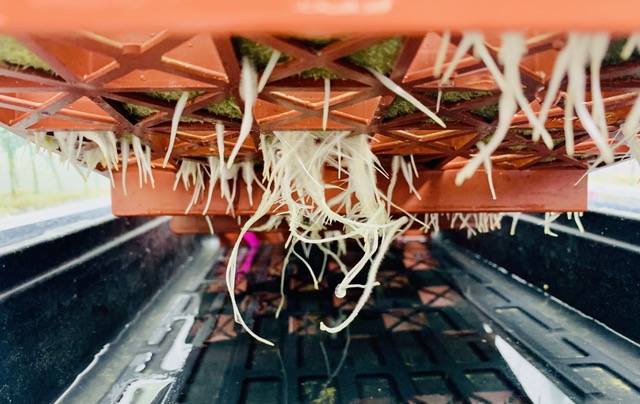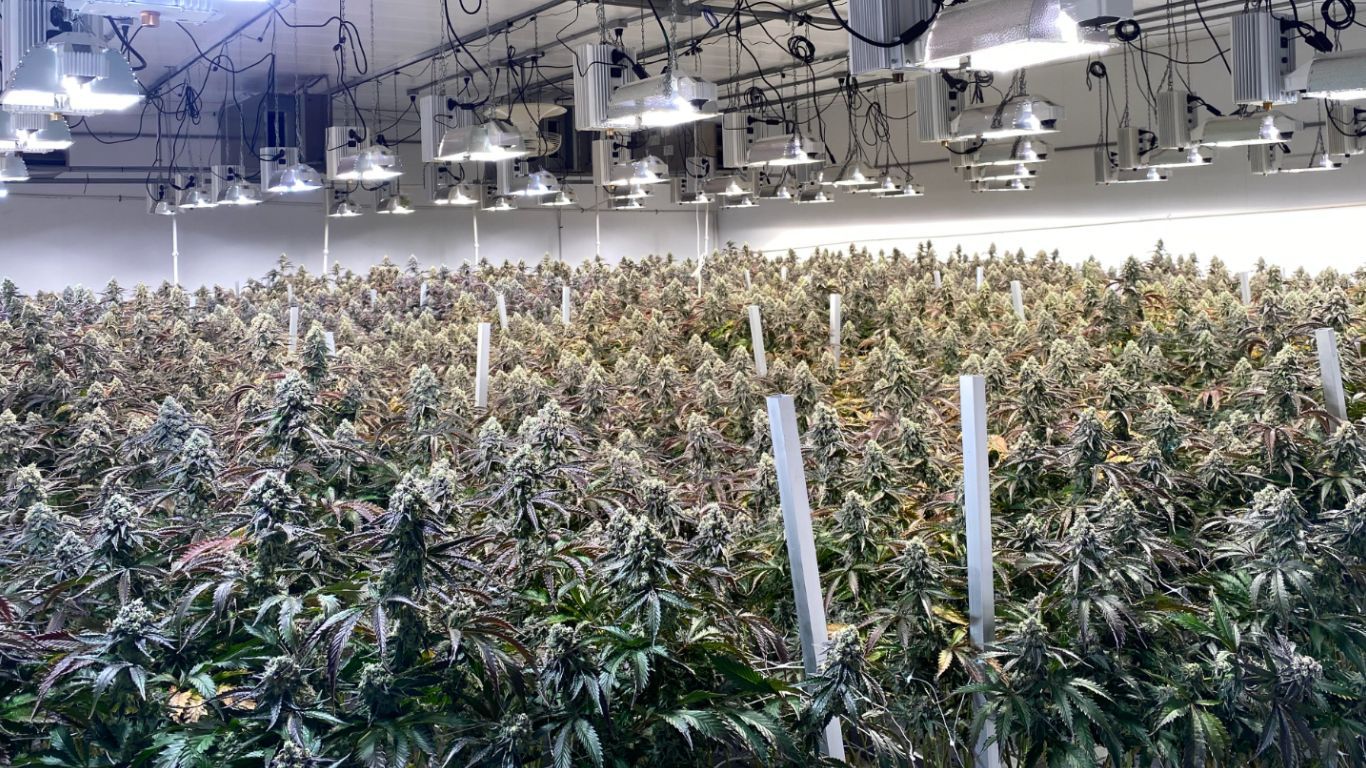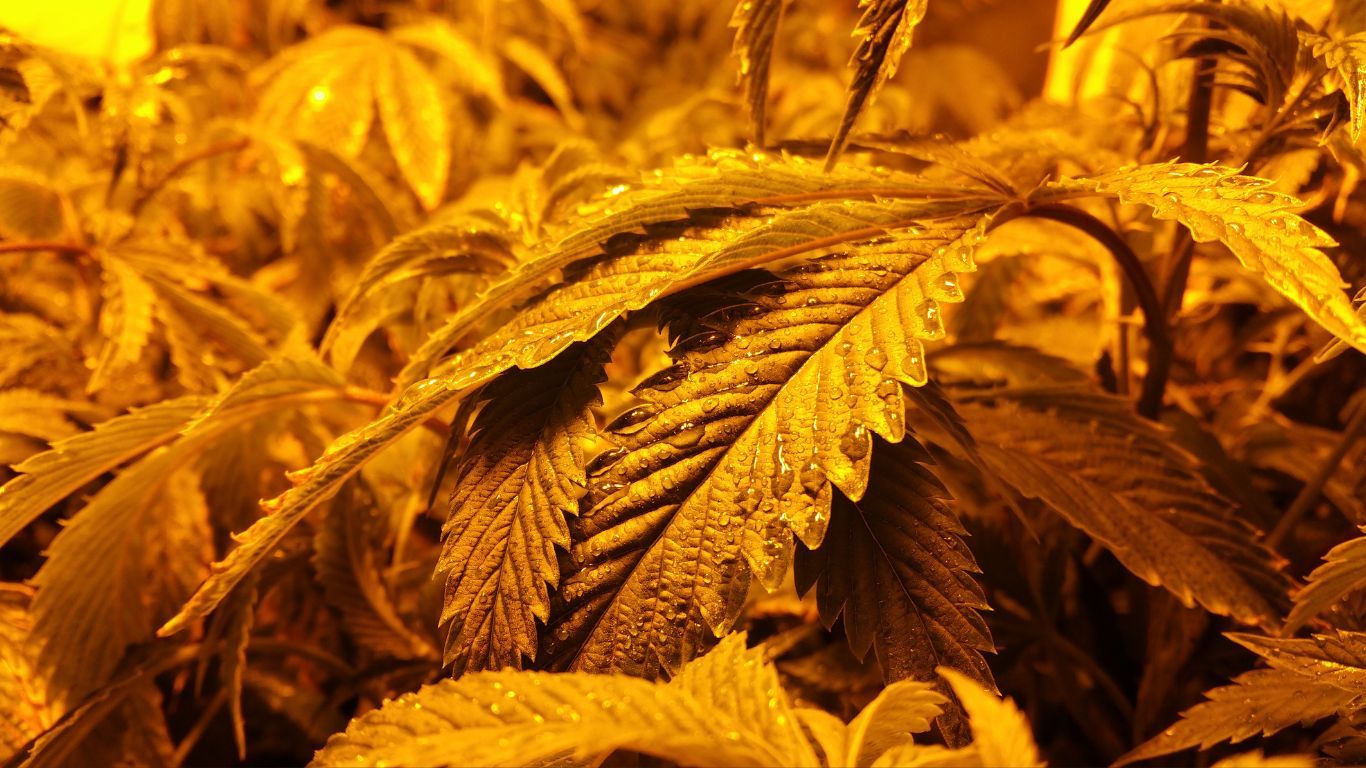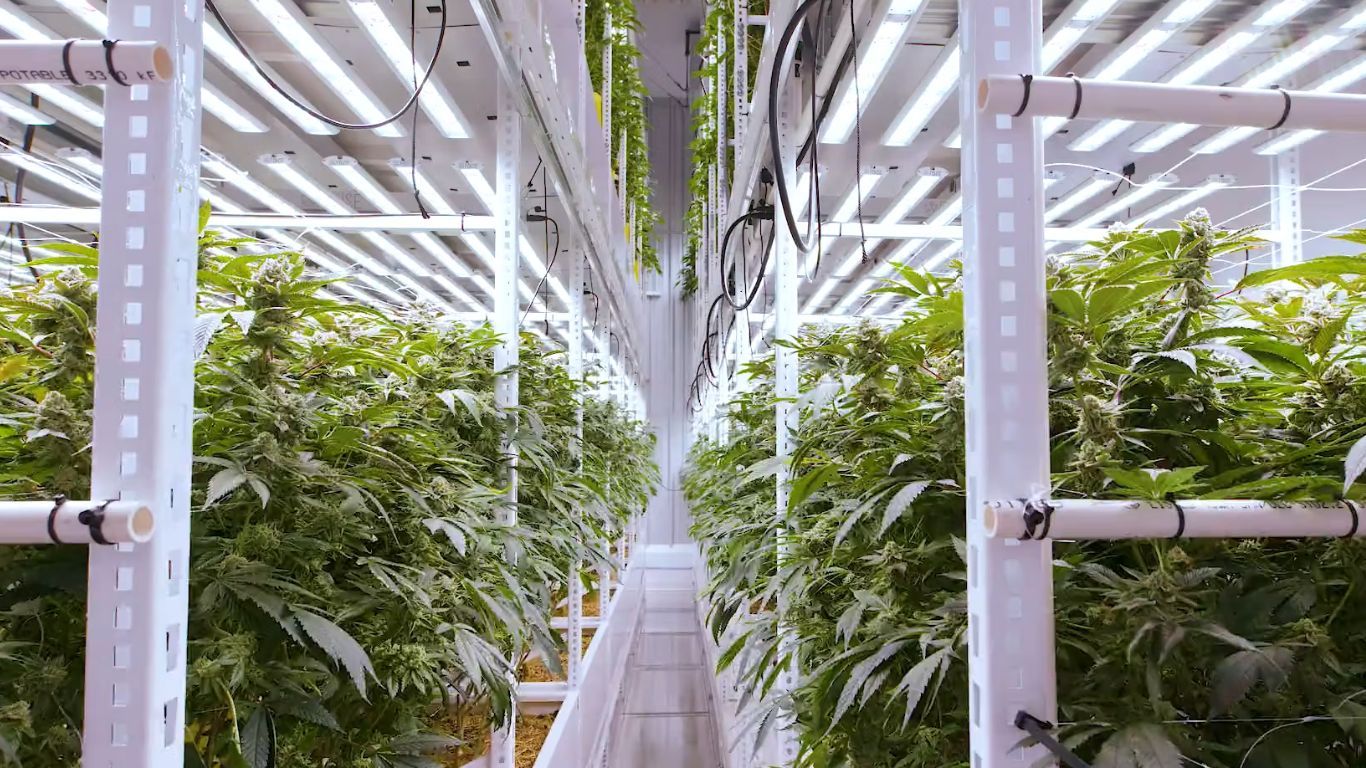
| COMPANY: | ANC Cannabis |
| LICENCE TYPE: | Micro Cultivation |
| APPROACH | Indoor, focusing on starting materials for commercial and home growers, with some flower sales |
| TIMELINE: | ~ 14 months (October 2018 to December 2019) |
| COST: | $750,000 (licensing, buildout and operations) |
| FACILITY: | Indoor, purpose built |
ANC Cannabis Inc is a micro cultivation licence holder located in Edmonton, Alberta. Their focus is on supplying seeds, clones, and tissue culture for the commercial and home grower, as well as cannabis flower for the consumer market.
The company started as an idea of Tairance Rutter in late 2017, when he first learned of Health Canada’s proposed new micro cannabis licences and brought the idea to a few friends who shared his passion for cannabis.
ANC’s retrofitted facility currently includes, along with the associated administrative space, four flowering rooms, one vegging room, and one propagation room, all within their 200m2 allowance as a micro cultivation licence holder. Most of the flowering room is currently dedicated to seed production and breeding, says Rutter, and the rest is being used for clone production and other cannabis production activities.
Rutter and his three partners who founded ANC were able to retrofit their new operations and get to the point of possessing a cultivation licence for approximately $750,000, Rutter estimates, in just over a year’s time. They did a majority of the construction and the application process on their own, and they also self-funded much of the project.
It’s bringing the spirit back to the community where businesses are willing to help each other out, share contacts, share experiences, share genetics, and work together as a whole industry, instead of trying to compete and crush and buy each other.
A passionate community emerging
The 29-year-old founder emphasized his passion for cannabis and the larger community of cannabis growers in Canada, and says he really wants ANC to add to that rich community. While he thinks the perception of that community has changed over the last few years with large, publicly traded companies taking much of the attention from the media and the public, he sees a new wave of others passionate like himself who are now emerging.
“The introduction of the micro licenses and nursery licences is allowing other small players and legacy growers to be able to enter the market,” says Rutter. “It’s bringing the spirit back to the community where businesses are willing to help each other out, share contacts, share experiences, share genetics, and work together as a whole industry, instead of trying to compete and crush and buy each other. This is a big change from where it was a few years ago and I’m proud to be a part of it.”
Currently in talks with two other provinces to provide seeds for consumers sales later this spring, (Lemon Safire, Lemon Skunk, Pink Lemonade, Super Lemon Haze, Golden Lemons 2.0, and Fruity Hoops), ANC has already begun providing clones for one other micro cultivator, Because You Cann, located just a few hours away in Mossleigh, Alberta.
Know before you grow
While Rutter says the company is currently focused on seeds and clones for the consumer and commercial market, they also have plans to soon release flower for retail sale. Initially this will be through a relationship with a processor, but they have also applied for a processing licence of their own so they can process and sell their own product.
The company has more long term plans to sell flower, likely in the form of pre-rolls, of the genetics they will be offering consumers as seed stock, so they can try the end product before deciding on a cultivar. This will be part of a larger program Rutter calls their “Know Before You Grow” service that will also include access to an online platform offering genetics-specific tips for home growers.
“We will be working with Shelter to bring the pre-rolls to market in the western provinces right away, all six strains will be available from April-June as a chance to try it before you grow it.
That way we’re not all smoking the same genetics that all the other LPs are growing.
“We are essentially focused on being a genetics company,” says Rutter, “and we’re one of the first companies to be breeding seeds for the recreational market under our own brand. We have an extensive breeding program that we’ve been running for some time and have been looking to supply clones and other starting materials to micros cultivators at affordable pricing, keeping the good genetics flowing and good products entering the consumer market. That way we’re not all smoking the same genetics that all the other LPs are growing.”
Genetics-and-flower model
In addition to their current application for a processing licence to add to their cultivation licence, ANC also has plans to apply for a nursery licence in a neighbouring building that will give them several thousand additional square feet of propagation space, and allow them to focus more on flower production within their current micro cultivation site. This addition will allow them to expand into the full genetics-and-flower model Rutter says he envisions.
Although he had looked at licensing opportunities in the past, and was a registered grower of his own cannabis for medical purposes under Health Canada’s previous medical program, he says the cost and scope of the regulations always seemed unrealistic.
Micro licensing opened the possibility
A medical cannabis grower and consumer, Rutter says he was familiar with the previous commercial cannabis regulations like the MMPR and ACMPR, but felt that he didn’t have the deep pockets and connections required to get a full commercial licence. But the introduction of the micro licensing category inspired him to take a chance and along with his three partners they put together a business plan in 2018 and applied in October, just a few days after the Cannabis Regulations came into full force.
Despite focusing on starting material, Rutter says ANC chose a micro cultivation licence rather than a nursery licence so they could have more room to breed and grow crops for seeds, while still having the ability to grow and store dried flower for sale to the consumer market in the future. (Nurseries can only grow flower for seed in a 50m2 space and must destroy their flower after harvest of the seeds.)
The day we got our licence, we applied for a processing amendment.
Leaning on his and his partners extensive experience in an array of fields from the highly regulated food production industry and the oil and gas industry, as well as Rutter’s experience growing cannabis, he says they were able to navigate the process without using outside consulting.
“When we applied we had no idea what to expect, we were told so many times we couldn’t do it ourselves, that we needed to hire a consultant, so when we applied we figured we would keep it simple and just apply for our cultivation license at first. And, the day we got our licence, we applied for a processing amendment.”
Access to genetics
Utilizing their own ACMPR personal licenses, Rutter says ANC brought in over a hundred different varieties in seed stock and about 15 as live plants and begun “popping seeds and pheno testing” in their flowering rooms. This included several of the varieties of seeds they expect to be available in at least a few provinces in the coming months.
“We’re essentially focussed on being a genetics company,” says the Co-Founder, “and we’re one of the first companies to be breeding seeds for the recreational market under our own brand. We have an extensive breeding program that we’ve been running for some time and have been looking to supply clones and other starting materials to micros cultivators at affordable pricing, keeping the good genetics flowing and good products entering the consumer market. That way we’re not all smoking the same genetics that all the other LPs are growing.”
We have a strong grow-your-own philosophy, and we want people to have access to new, legal genetics.
“We’ve dedicated half of our flowering room to seed production for the recreational market,” says Rutter, proudly. “We have a strong grow-your-own philosophy, and we want people to have access to new, legal genetics. That way we can get home growers fired-up about legally acquiring seeds to grow their four personal plants and not be limited to the… let’s say lacklustre options… that have been on the market so far.”
The licensing process
The licensing process wasn’t particularly difficult, he says, although at times the lack of communication from Health Canada was frustrating and confusing. Sometimes they’d go months without hearing anything about their application, with no direct way to get in contact with anyone at the branch who could answer their questions. This is not an uncommon complaint.
“When we applied in October we didn’t have any communications from Health Canada until about January and that’s when we got our first invoice for licensing. Then again not much communication until about March when we got our first RMI (request for more information). Then right about the middle of May we got our invoices for security clearances and our confirmation of readiness” (right before the change to licensing that would mean no more confirmation of readiness letters).
DIY approach
Despite these frustrations, and although he acknowledges that he and his partners’ unique skills and experience might not make their Do-It-Yourself approach applicable for everyone, he says he does think there is a lot of opportunity for people to enter the industry now who couldn’t before.
“It’s going to depend on your background, your work ethic, and your understanding of strict regulations. We came from the food industry so it was very transferable, where everything we did was according to SOPs, HACCP, GMP, so we understood that. I could see how a person who is coming from a different level of experience, might have a hard time writing the application, so I can’t say you can do it on your own, but I think with hard work you can get through it.”
“For us, we’re trying to keep the culture alive,” he says. “We didn’t start this to become the next millionaires. I feel like I haven’t worked a day since our facility opened. I work long days, but it doesn’t feel like work. I love what we’re doing.”

What does ANC stand for?
As for their name, Rutter says it was somewhere between an inside joke and a compromise.
“ANC stands for ‘A Numbered Company,” he explains. “Originally, one of my partners, Tom (Facciolo) wanted a numbered company and I wanted to name the corporation, so we compromised and named it A Numbered Company Inc. Corporations Canada didn’t find it quite as funny, and six months later forced a name change so we stuck with ANC Cannabis to pay homage to the original name.”
ANC stands for ‘A Numbered Company’.


